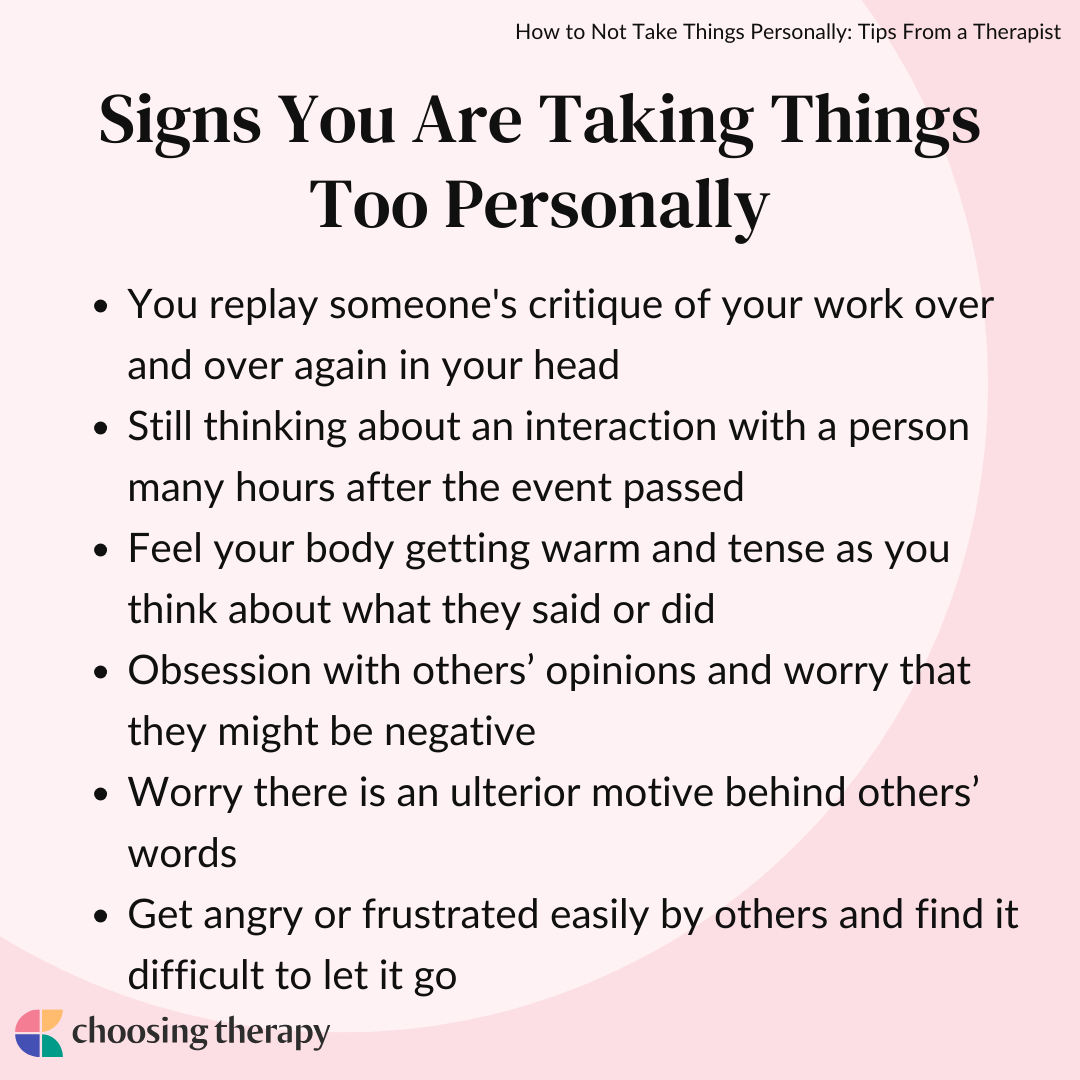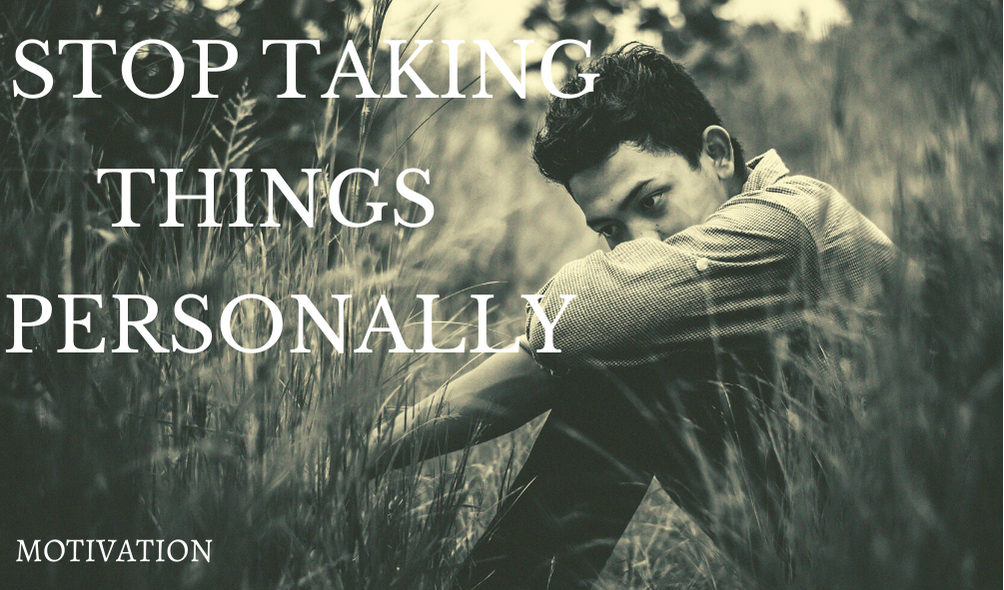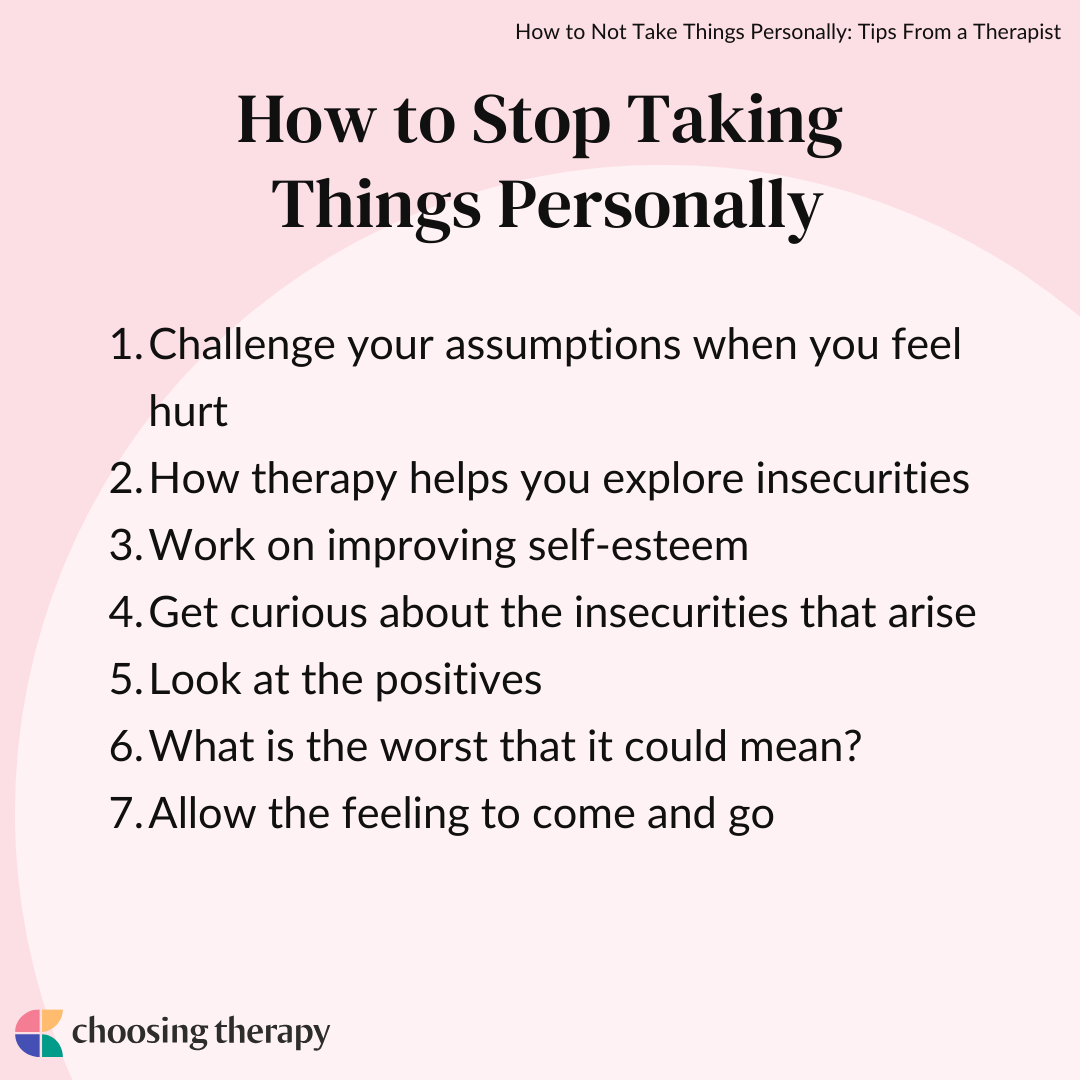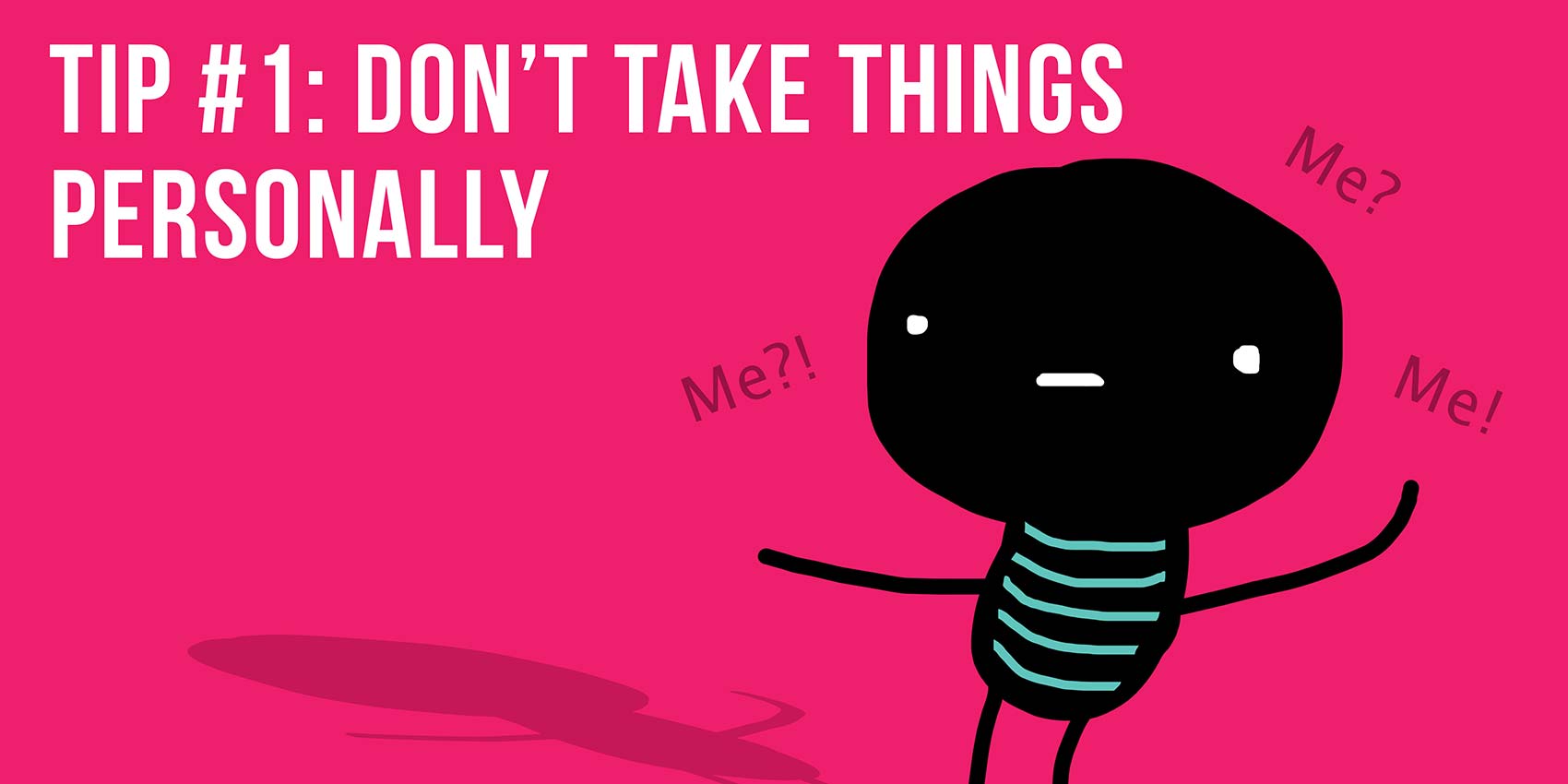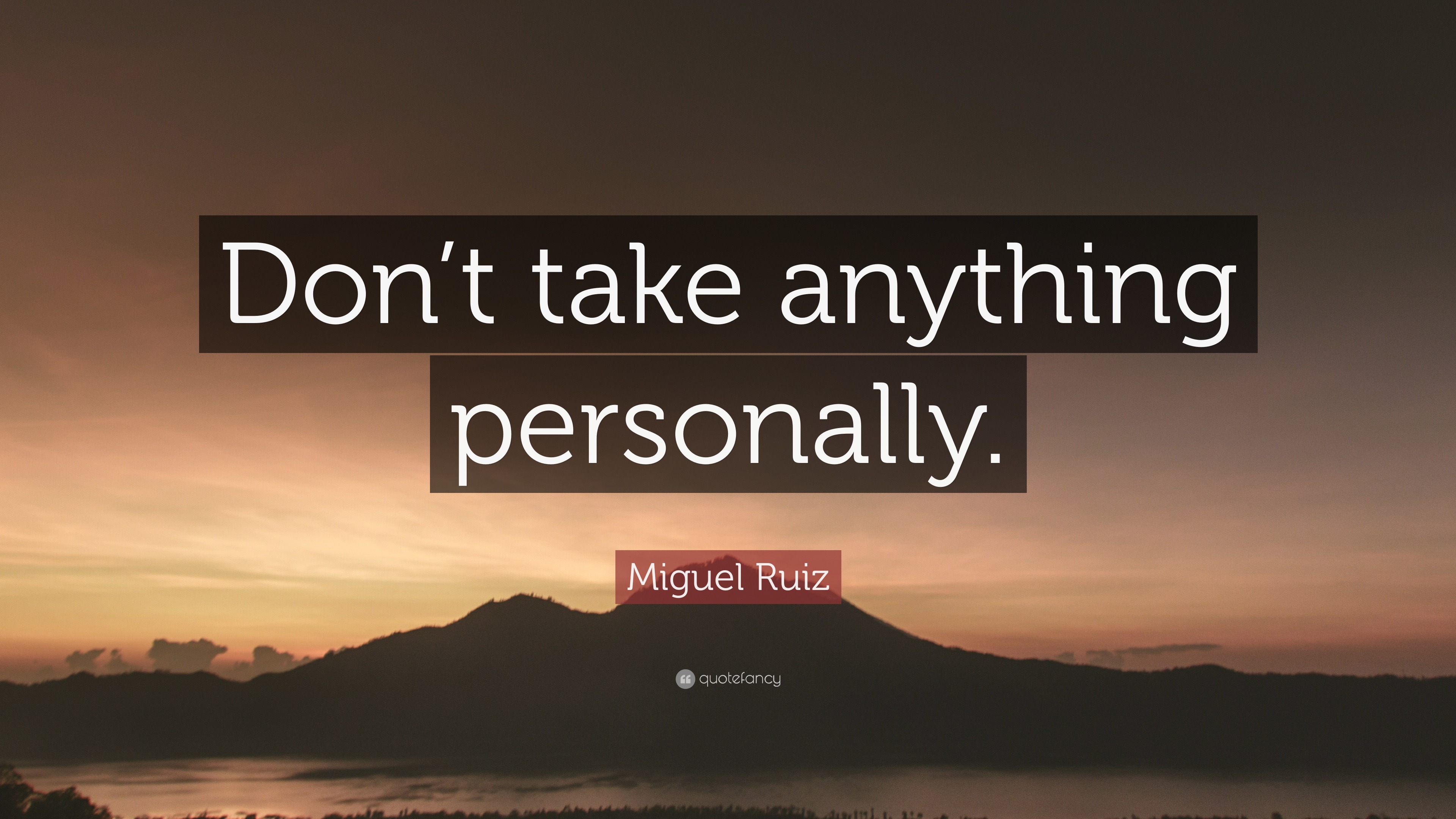What Does It Mean To Take Things Personally
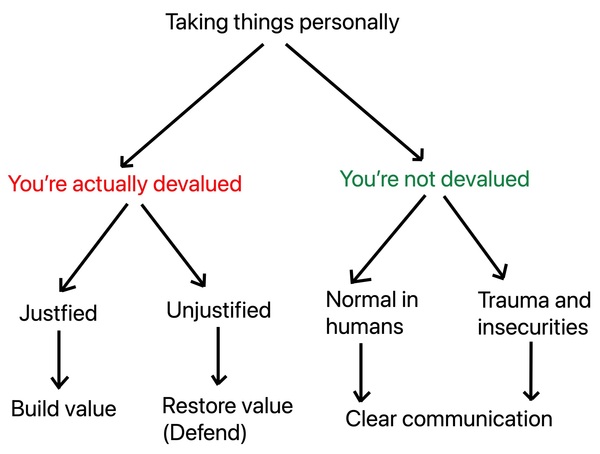
In a world increasingly mediated by fleeting interactions and digital discourse, the tendency to take things personally has become a pervasive source of anxiety and conflict. Whether it’s a critical email from a supervisor, a misinterpreted social media comment, or a perceived slight from a friend, the impact can be profound, triggering emotional distress and hindering effective communication.
At its core, taking things personally means interpreting events or actions as a direct reflection of one's own worth, abilities, or character. This article will explore the psychological mechanisms behind this common reaction, examining its impact on relationships, professional lives, and overall well-being. It will also delve into strategies for developing a more resilient and objective perspective.
The Psychology of Personalization
Psychologists often link taking things personally to underlying insecurities and a fragile sense of self. A study published in the Journal of Personality and Social Psychology suggests individuals with low self-esteem are more prone to interpret ambiguous situations negatively, assuming they are being judged or criticized.
This tendency is often exacerbated by cognitive biases, such as confirmation bias, where individuals selectively focus on information that confirms their existing beliefs about themselves, even if those beliefs are negative.
Childhood experiences also play a significant role. According to Dr. Susan Forward, author of Toxic Parents, individuals raised in environments where criticism was frequent and unconditional love was scarce may develop a deeply ingrained habit of internalizing external feedback as personal attacks.
Impact on Relationships and Work
The ramifications of taking things personally extend far beyond individual emotional distress. In interpersonal relationships, it can lead to misunderstandings, resentment, and ultimately, broken bonds. If one partner consistently interprets neutral comments as criticism, it creates a defensive dynamic that stifles open communication.
At work, the consequences can be equally detrimental. According to a 2018 report by Gallup, employees who feel constantly judged or criticized are significantly less engaged and productive. This can lead to increased stress, burnout, and even job loss.
Furthermore, taking criticism personally can hinder professional growth. Individuals may become hesitant to seek feedback or take risks, fearing negative evaluations. This limits opportunities for learning and development.
Cultivating Resilience and Objectivity
Fortunately, there are concrete steps individuals can take to reduce the tendency to take things personally. One of the most effective strategies is to practice cognitive restructuring, a technique used in Cognitive Behavioral Therapy (CBT).
This involves challenging negative thought patterns and replacing them with more balanced and realistic interpretations. For example, instead of assuming a delayed email response means the sender is angry, consider alternative explanations such as a busy schedule or technical difficulties.
Developing self-compassion is also crucial. Dr. Kristin Neff, a leading researcher on self-compassion, argues that treating oneself with kindness and understanding, especially during difficult times, can buffer against the negative impact of perceived criticism.
Another helpful technique is to actively seek clarification. Instead of immediately reacting to a perceived slight, ask for more information or context. A simple question like, "Can you help me understand what you meant by that?" can often diffuse misunderstandings and prevent unnecessary emotional distress.
Looking Ahead: Building a More Empathetic World
Ultimately, reducing the tendency to take things personally is not just an individual endeavor. It also requires a collective effort to foster more empathetic and understanding communication in all aspects of life. Organizations can promote a culture of constructive feedback, where criticism is delivered with respect and focused on behavior rather than personal attacks.
Similarly, in personal relationships, practicing active listening and expressing oneself with clarity and kindness can minimize misunderstandings and create a safer space for vulnerability. As we become more mindful of our own biases and sensitivities, we can also become more compassionate towards others, recognizing that their words and actions are often shaped by their own experiences and insecurities.
By cultivating resilience, practicing empathy, and fostering open communication, we can create a world where constructive feedback is embraced, misunderstandings are resolved with grace, and the tendency to take things personally is significantly diminished. This will lead to stronger relationships, more productive workplaces, and a greater sense of overall well-being.


